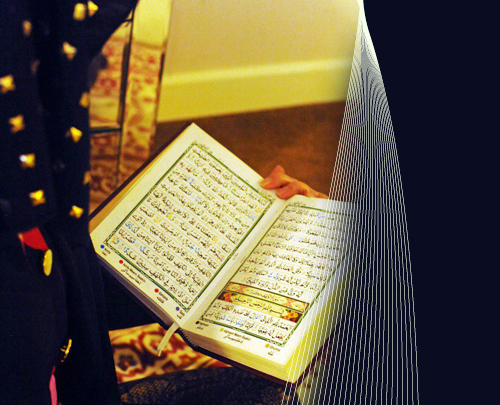Hijab literally means a veil or cover. Islam requires men and women to observe
Hijab in their own ways. The question arises to whether Hijab is just a personal
deed or does its observance or violation affect the society. In other words, can
we really say that Hijab is one’s personal choice in a society that Islam wants
to create?
Personal deeds are those that mainly affect the individual; failing to observe
these actions will deter one’s relationship with Allah and bring personal harm.
The daily prayers and fasting are examples of some personal deeds that
predominantly affect one’s own spirituality. However there are certain actions
that directly impact the society; taking out alms (khums, zakat), enjoining
good, forbidding evil, kindness to one’s relations, among several others. Hijab
is one such action that has its profound effects on society. Thereby, the
requirement of imposing Hijab in an Islamic society can be felt; this article
will seek to reflect on the scientific and Islamic dimensions of Hijab in a
social sphere.
The Scientific View
Human behavior and actions are controlled by information that our brains and
nerve cells store. This information is received and perceived through our senses
and stored within our brain as memories, thoughts, emotions and ideas. The
stored information drives processes that affect one’s decision-making to a great
extent, finally resulting in one’s outward behavior and actions.
Surprisingly enough, around 80% of all sense perception reaching our brain comes
from the eyes alone! One can imagine the significant role played by the eyes in
driving our mental processes and behavior. Whether it is watching a movie,
playing videogames, or regular day-to-day activities that our eyes perceive –
they all play an important role in affecting our thoughts, actions and behavior.
If one is not selective about filtering indecent and inappropriate scenes from
being viewed, one can be assured that it will bring about negative responses and
unworthy behavior!
In a society where the eyes are not protected from viewing indecent or
provocative sensory information, it should not be alarming to see the decay of
modesty and higher morals in society. This is where one must realize the
blessing of Hijab; the physical Hijab as well as the Hijab of the eye are a
divine blessing for believers to avoid pitfalls and create a healthy society.
The Islamic View
The very reason that Islam considers mixed gatherings as prohibited is because
they violate physical and social Hijab to a great extent. Our respected Maraja
Taqleed and scholars unanimously agree with the impermissibility of mixed
gatherings.
Imam Jafar al-Sadiq (a.s.) said: “Whenever the eye looks at something
forbidden, a knot of desire is tied in the person’s heart, and that knot will
only be untied by one of two conditions: either by weeping out of grief or
regret in true repentance, or by taking possession of what one desired and
looked at.”
Clearly, the non-observance of physical Hijab by women has the potential to
encourage forbidden gaze by the opposite gender. Indeed the dangers of not
observing Hijab can be realized through the wisdom of our infallibles.
In addition, lack of modesty in the society has the potential to impede its
growth and corrupt it through diverting minds into unnecessary or indecent
thoughts and behavior.
Ayatullah Muttahari says in his book The Islamic Modest Dress, “Contrary to
the opinion that ‘the modest dress results in paralyzing half of the energy
potential of the individuals of society’, the lack of the modest dress and the
gradual development of free relationships has caused the social force to fail.”
Every society or country chooses to impose a dress code for its citizens. What
better dress code can one impose than the Islamic Hijab? In the eyes of a
believer, is there anything better than the Islamic standards of modesty?
In conclusion, the beautiful blessing of Hijab extends itself from being just a
personal choice to one that impacts greater good of the society. By choosing to
observe Hijab, Muslim men and women not only elevate their own spirituality but
they in fact help in elevating our social fabric and together prepare for the
return of our awaited Imam (atf).
* Source: aimislam.com



















